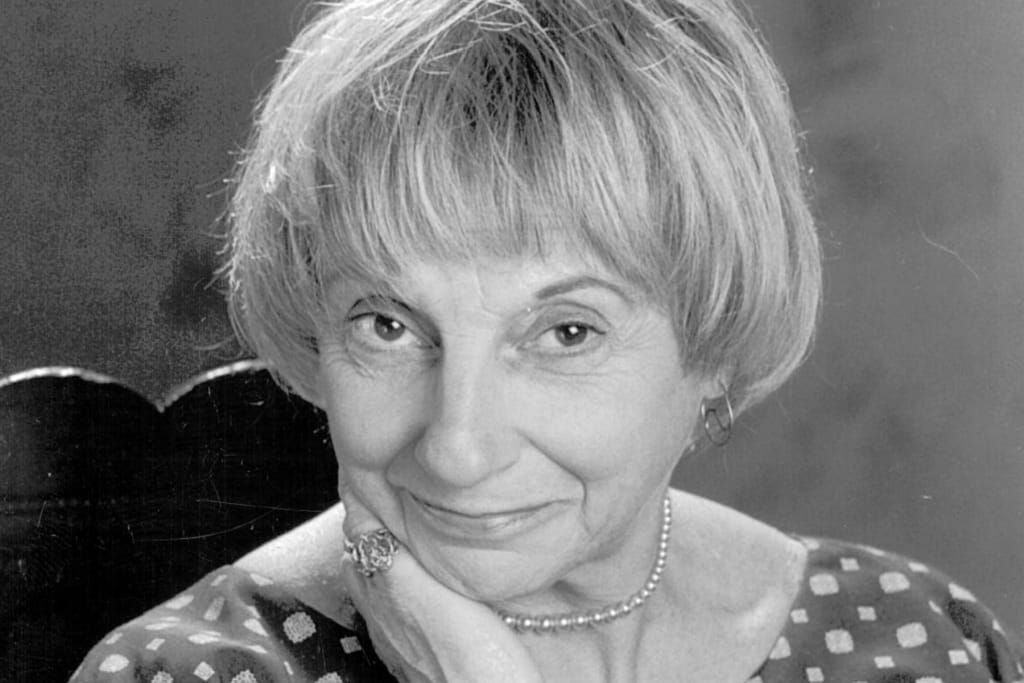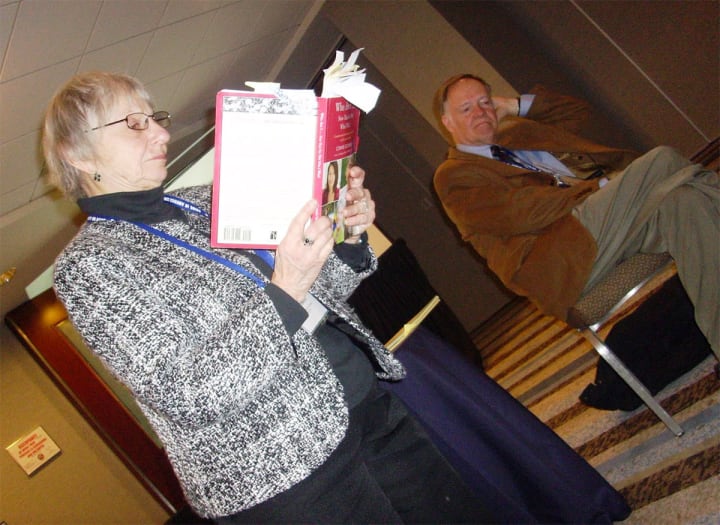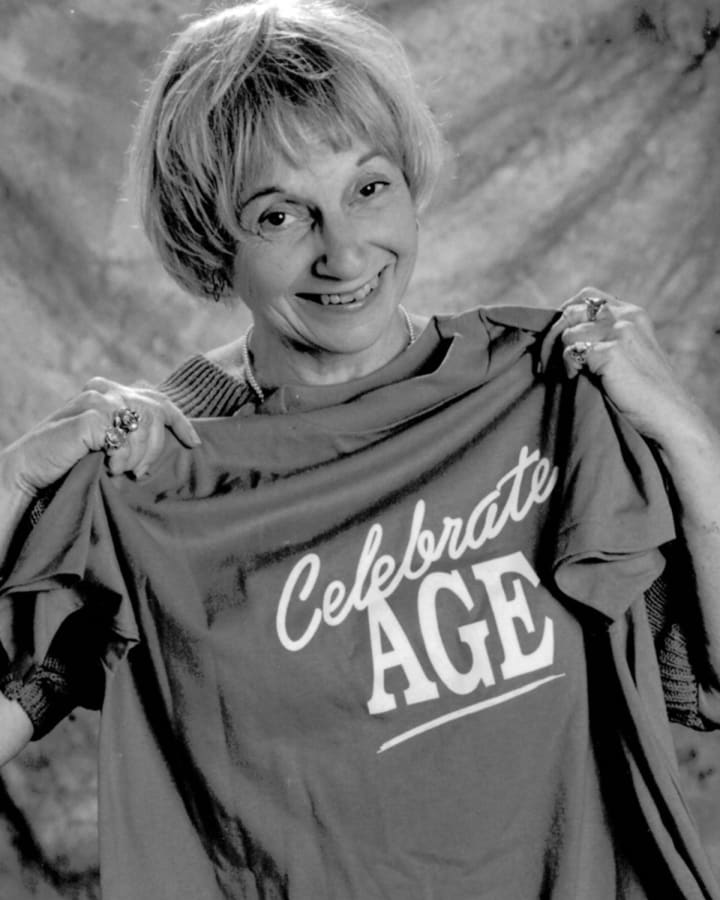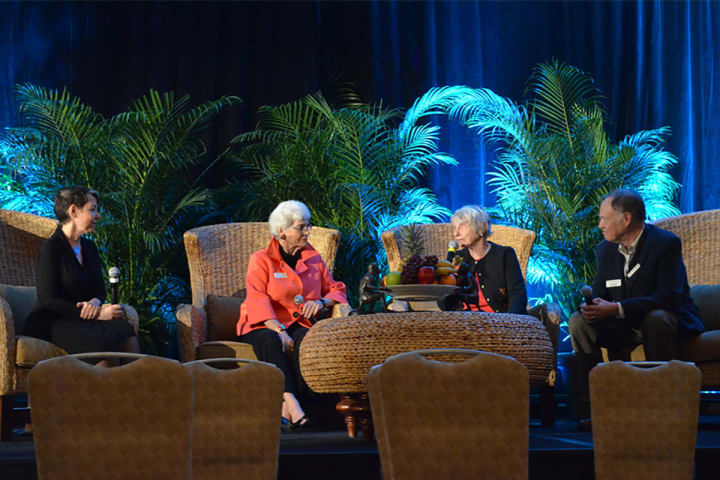Interview with Connie Goldman, Author of 'The Gifts of Caregiving'
Connie Goldman's career is centered around empowering and demystifying the aging and caregiving community. In this interview, the author shares insights from her book 'The Gifts of Caregiving: Stories of Hardship, Hope, and Healing.'

Connie Goldman started out in broadcast radio; she is the former host of National Public Radio's "All Things Considered" and NPR arts reporter. Eventually, Goldman came to find her true area of passion–the changes and challenges of aging–and has spent the 30 years since entrenched in that field as a speaker, writer, interviewer and radio producer. Despite her diverse set of work experiences, Connie’s motivation has always been consistent–to make any stage of life an opportunity for new learning, self-discovery and continual growth.
An estimated 25 million adults are caring for a loved one right now, and that number continues to increase every day. But while the days of a caregiver can be filled with frustration and stress, and there are myriad sacrifices one must make before undertaking such a role, these challenges are only part of the story. In her interview with Longevity, Goldman discussed her new book The Gifts of Caregiving: Stories of Hardship, Hope, and Healing and shared her wisdom about the aging process and the rewarding, transformative nature of caregiving.

Longevity: What inspired you to become a speaker on elderly caregiving, and write The Gifts of Caregiving: Stories of Hardship, Hope, and Healing?
Connie Goldman: In early 1999, I produced a one-hour radio program, “Hardship into Hope: The Rewards of Caregiving,” that was broadcast on National Public Radio. It consisted of a series of interviews with family caregivers with some well-known personalities and some not so well known but all with inspiring stories to share.
After “Hardship into Hope” aired, I was overwhelmed with letters, e-mails, and phone calls from people across the country requesting printed transcripts and recordings of the program. Listeners were inspired by the thoughtful words of Dana Reeve, wife and caregiver to actor Christopher Reeve, who had suffered paralyzing spinal injuries in 1995. They were moved by the insights of Ram Dass, the well-known spiritual leader whose stroke changed his role from caregiver to care recipient. They resonated with former First Lady Rosalynn Carter’s observation that nearly all of us will need a caregiver or possibly become a caregiver sometime in our lives. Many told me they were grateful to hear positive stories of caregiving—stories of family intimacy, personal fulfillment, and spiritual growth.
Some of the listeners urged me to write a book based on the radio program. With their encouragement, I began to conduct additional interviews that put into words the special gifts of giving care to another person. The result is the book you hold in your hands, The Gifts of Caregiving: Stories of Hardship, Hope, and Healing.
How would you define the term caregiver, and what responsibilities does that entail?
I would define the term caregiver as anyone that is providing some level of care to a person that is unable to complete all of their daily tasks and necessities by themselves. Their responsibilities are often as varied as the people involved. Being a caregiver is often looked at as an additional responsibility that takes time away from other activities in one's life. There is no denying that caregiving can add stress and uncertainty while trying to understand the needs and changing rhythms of the person needing care. It is often thought of as important new priorities that require changes in obligations and schedules and additional burdens. Yet, they don’t realize that with new responsibility comes the opportunity for personal learning and growth.

Describe one of the most challenging obstacles people face while caregiving. What is the most rewarding?
The most challenging obstacle people face when accepting the responsibility of being a caregiver is taking the time to take care of themselves. Caregivers become so focused on the practical needs of the person receiving care, in addition to whatever obligations they have in their own work or family obligations that they forget to take time for themselves. Every caregiver needs to allow themselves the time and space to recharge and to understand that taking care of their own health and personal needs is necessary.
Each person has their own idea of what is or has been the most rewarding part of the caregiving experience for them. Often just knowing that they were important, helpful, and made a positive difference in someone’s life can be the most rewarding experience. Many people have talked about how their caregiving role gave them a more meaningful and deep understanding of the person they were caring for and also a new learning about themselves.
At any point have you felt like you wanted to give up caregiving for someone? If so, what made you continue on?
I have never been in a situation where I have been faced with the feeling of wanting to give up caregiving for a loved one. In my caregiving experiences, I was able to recruit extended family as well as an outside caregiving agency to offer assistance to my situation. This allowed the caregiving responsibilities to be spread out amongst several people to avoid any one person to feel overwhelmed. Caregivers need to care for themselves as well as another.
Tell us about your new companion piece, Wisdom from Those in Care: Conversations, Insights, and Inspiration, and how it sheds light on what it feels like to be dependant on another person.
In talking with several people now requiring some level of care, I’ve learned how valuable deep, personal conversations, whether with their caregiver or with close relatives and friends, can be for a person receiving care. Care receivers often find substantive conversation as healing as medications. They might talk about memories and experiences, their current priorities and personal values, as well as the importance to them of spiritual or religious supports. For others, a conversation can sometimes be a time of forgiveness and a healing of past family separations and previously alienating differences.

What would you say the biggest sacrifice is that one must make if deciding to become a caregiver? What advice would you give to others who are contemplating becoming one for a loved one?
Taking on the responsibilities that come with planning, supervising or performing hands-on caregiving for another involves a commitment that has continuing changes and challenges. Many of those depend on the health, mobility and other conditions of the person needing the care. Some changes in the life of the primary caregiver also can bring both small or dramatic changes. Those changes come in each situation, often unexpectedly, and require involvement by other members of the family or outside help. Changes will depend on the needs of the person receiving the care and/or new needs and obligations that arise for the primary caregiver.
A caregiving partnership requires open and honest communication with all members of the family. A lot depends on the current obligations and commitments in the life of the person assuming the role of primary caregiver. There are continual changes in the life of the person receiving care and also necessary modifications that possibly include additional extended family needing to participate in a discussion about creating a caregiving partnership.
In general, what are some of the biggest challenges of aging? What kind of preventative measures can we do to combat that early on?
I think the biggest challenge is an honest acceptance of changes in health, mobility, activities, and commitments. These are all circumstances that are varied and unique to each individuals situation. In current Amerian culture, there are many who look at new limitations and changes as negative and losses. A more sensible way of accepting individual changes is to focus on the things that can still be done with safety and comfort for both the one in care and the caregiver. It’s all an individual assessment that can be appropriate for weeks, months or even years, yet such changes, particularly in elderly, ill and needing care from others can actually necessitate changes daily or weekly.
Are those in caregiving situations eager to discuss death? How, as someone who is being cared for and someone who is caregiving, can we approach that conversation?
Often a person in care may be eager to discuss even their impending death. That subject is not easy for some people to face and maybe deliberately avoided in many families. Often there is relief and comfort in talking about death and other difficult subjects, that some have labeled “end of life issues”. It is best to approach the conversation honestly and openly while understanding that it may be difficult for some to discuss. Everyone involved in the discussion needs to be patient with one another and to allow all involved an opportunity to speak. It’s important to give the speaker your full attention when listening, possibly with a nod of one’s head to assure the speaker they are being heard.
From the perspective of the person being cared for, what is the biggest challenge they face?
I believe the biggest challenge is accepting the reality of their situation and their need for dependence on another person in various situations. If the person requiring care can work cooperatively with the caregiver, even in a minor way, so their safety is ensured, they can feel like they are contributing to their care and can avoid the feeling of complete dependence. Each situation is individual. If the person requiring care can maintain some actions of independence in the areas of care they are receiving, they will be able to feel more involved, in control, and independent in their daily life.
What would you say to someone who is afraid of one day not being able to care for themselves?
I think the fear is tied up with the loss of independence and freedom for so many actions and decisions in their lives in the past, or possibly even last week or yesterday. Much depends on how the care is offered to keep them safe while still remaining active and involved in many aspects and activities of their daily life. Coming to an awareness that many of their usual activities can become easier and more able to maintain with the acceptance of cooperative help will ensure safety along with some satisfaction of independence. If the help is offered in a way that doesn’t over-dramatize their dependence and make them feel incompetent and useless, they can be more open to accepting the help they need. There needs to be a cautious awareness of the continuing changes and challenges that accompany aging and other diagnoses so they are able to maintain a safe level of independence.
What are some best practices to spark conversations to learn more about a person’s memories, experiences, and values?
The best way to spark a deep and meaningful conversation is by putting aside everything else and truly listen to one another. Paying attention to what the other person is saying gives you the opportunity to share with them your thoughts on a subject. Sometimes having a deeper conversation can come with a response such as “would you like to tell me more about that?”
Learn more about Connie Goldman at congoldman.org
Follow the author on LinkedIn
About the Creator
Longevity Staff
In all modes and aspects, a group of shape shifters committed to spreading the gospel of health and wellness.






Comments
There are no comments for this story
Be the first to respond and start the conversation.